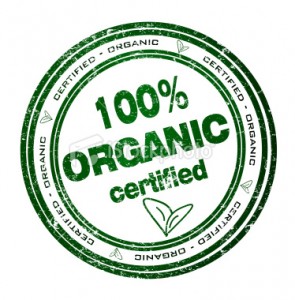Understanding Your Environmentally Conscious Eating Options
A few years ago, I decided to become vegetarian after reading numerous reports on the production of meat and viewing horrific footage of the fishing industry in Japan, which I mentioned last week. For a year, I dedicated myself to avoiding meat and seafood. After a while of living this lifestyle and having my friends jokingly entice me with many meatball subs from the dining hall, I began to question why I had become a vegetarian. I finally realized that I had become a vegetarian for not altogether the wrong reasons, but that I had made an uneducated decision based on my many assumptions of what the food industry was like.
I thought that eating vegetarian was the only way for me to protest animals being inhumanely slaughtered, avoid meat riddled with hormones and antibiotics – whether from medicine or tainted food the animals are often fed – and contribute to bettering the environment. Well long story short, I was very wrong. I started researching ways to eat meat products and seafood in ways that were conscious of the environment, as well as animal friendly. Although I’ll admit that I was originally motivated to do this research because I was so tempted to start eating those meatball subs again, the information I found on environmentally conscious eating can be applied to not only meat and seafood, but fruits and vegetables as well.
Some problems within the agricultural industry are:
- Damaging the environment through soil, air and water pollution from animal waste, chemicals in fertilizer, and pesticides
- Inhumane treatment of animals that are susceptible to disease
- Meat and dairy products coming from animals injected with growth hormones
With these inherent dangers coming from the agricultural industry, there’s currently a big movement towards eating organic foods. Another good way to be environmentally conscious is to buy foods that are locally produced, meaning from local farmers at a farmer’s market for example. You’ll not only be supporting small-time farmers rather than the corporate giants of the agricultural world, but you’ll also be buying from a local source that didn’t have your zucchini shipped across several states, which also cuts down on the impact of fossil fuels used in food transportation. Now what does it mean for something to be organic, and what’s the benefit in eating these types of foods?
farmer’s market for example. You’ll not only be supporting small-time farmers rather than the corporate giants of the agricultural world, but you’ll also be buying from a local source that didn’t have your zucchini shipped across several states, which also cuts down on the impact of fossil fuels used in food transportation. Now what does it mean for something to be organic, and what’s the benefit in eating these types of foods?
- Animals live “stress-free lives”, are fed natural feed, not injected with hormones, and roam freely in pastures
- Meat and dairy production is clean and humane
- Produce is grown without the use of pesticides or fertilizer
- Produce will not be genetically modified
- Farm workers will be healthy because they’re not constantly in contact with chemicals
- Farms put out less pollutants and greenhouse gases than industrial farms
I think that in an era where mass produced food rules, it’s especially important to understand where your food comes from. It’s not necessary, nor is it smart to assume that being vegetarian is the right way to eat responsibly. This deeper understanding of food can support responsible and sustainable farming practices, and keep you healthy! Make sure you check out these guides for seasonal fruits and vegetables and farmers markets in your area.
Yvonne Chen is a SISGI Group Program and Research Intern. Her focuses are in environmental sustainability, human rights issues, and economic aid in developing countries.



2 pings